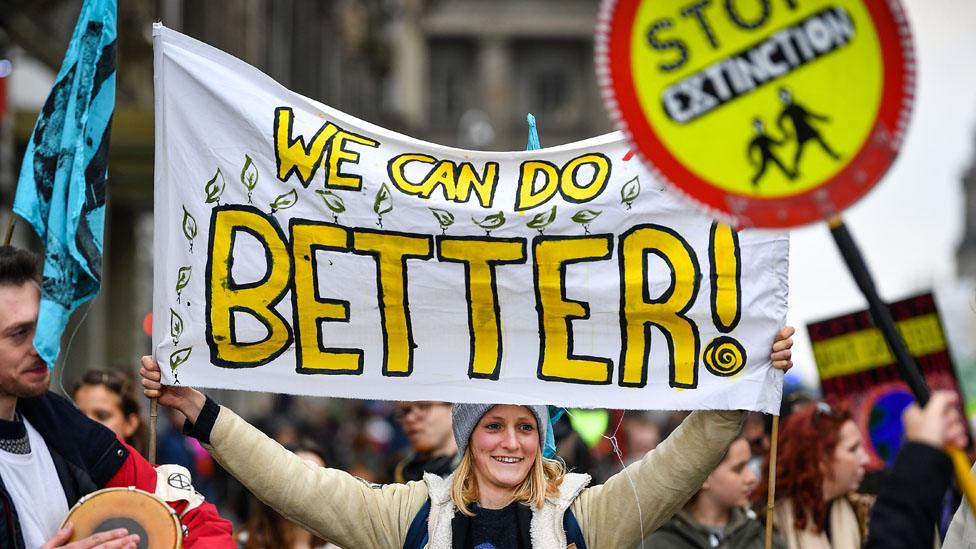How to tackle Scotland's 'climate emergency'
- Published
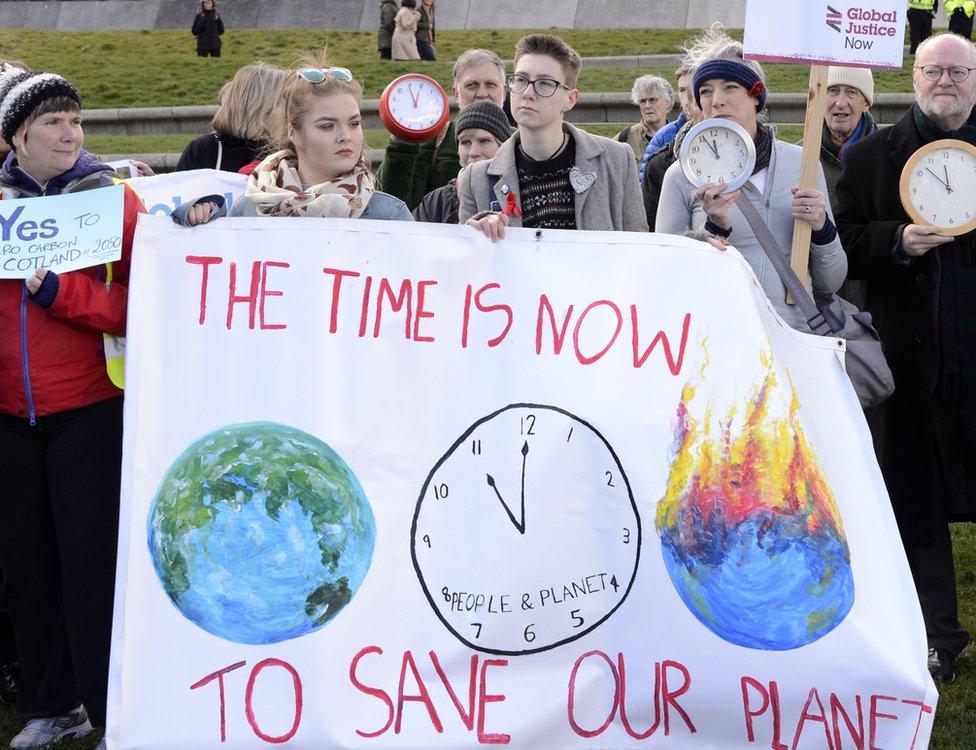
Climate change campaigners have been calling for more action to tackle the issue
As BBC Scotland launches a season of special news coverage across all our platforms on climate change, we ask what is being done to tackle Scotland's "climate change emergency"?
It has been a year of record wildfires and unprecedented high temperatures.
Scientists say these extreme events will become more frequent as the earth's temperature continues to rise.
After declaring a climate emergency, Nicola Sturgeon will next month unveil a programme for government she says will have climate change at its heart.
So, what shape is that climate in and what does the Scottish government need to do to put it in a better state?
Highlighting the issue
One way might be by continuing to raise awareness of the problem.
Outside the Edinburgh International Conference Centre, where the climate emergency was declared, I attempted to gauge how much people knew.
One young female worker, who hadn't heard of the declaration, explained: "There is tonnes of pollution all around us so it needs to be brought to people's awareness."
Another, a man, went as far as to say: "I'm not that interested in climate change and all that. I just go about my daily life."
But a woman, who did know about the climate emergency, declared: "We definitely should be doing more. I think everyone's got a bit caught up with Brexit and new prime ministers and Trump."
This straw poll doesn't prove much except that, for some, the vast amount of coverage over recent months has somehow failed to sink in.
But what about those who are consciously clued up?
Climate conversations
At Birnam in Perthshire the world's first climate cafe, or so they claim, was born about five years ago and is still going strong.
Residents meet monthly over a coffee to share ideas on how to reduce their greenhouse gas emissions.
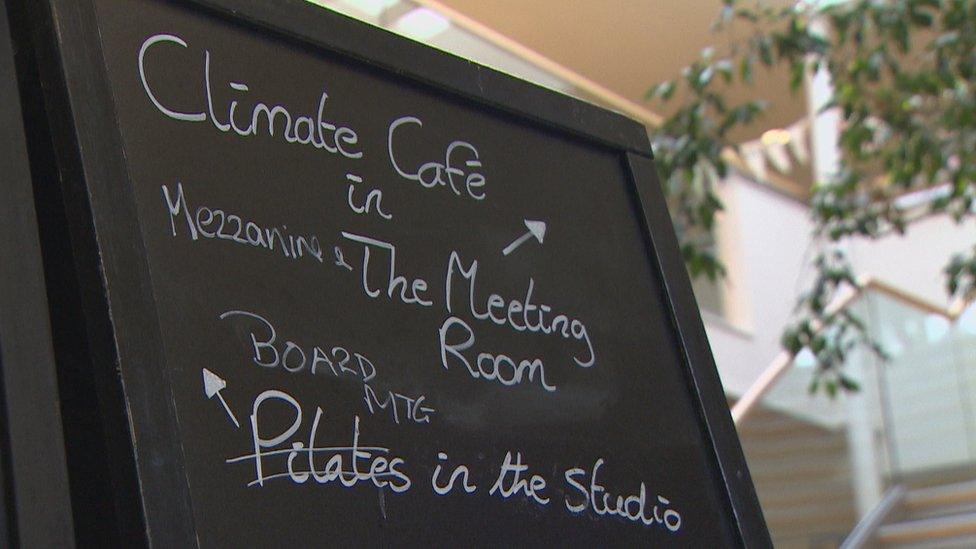
The climate cafe in Birnam allows people to meet and discuss solutions
These events happen now across Perthshire and Scotland. There are even some being established overseas in places like Australia and the US.
Regular attendee Ruby, aged 16, told me: "I think the ripple effect is a very big thing and small differences that people can make have a very big impact."
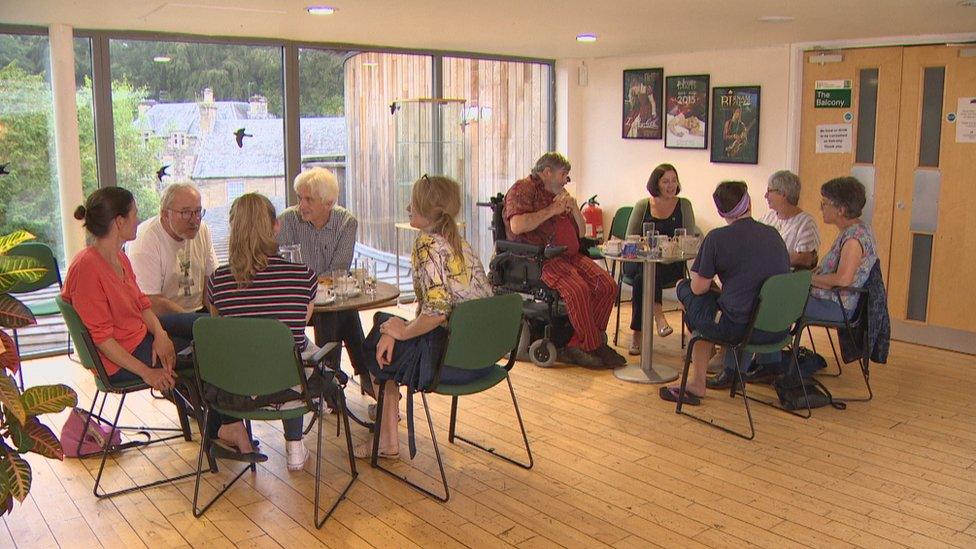
Those involved with the cafe say change "starts with conversations"
Organiser and climate cafe founder Jess Pepper added: "The important thing is that this is an emergency, but it's going to take all of us working together with government at local and national level, and globally, to achieve the solutions.
"We can do that, but it starts with conversations around the world like this."
Mercury rising
Already the planet is one degree above pre-industrial levels with predictions that if we take no action we could push that as high as five degrees, making some parts of the planet uninhabitable.
A limit of 1.5C is the aim that has been agreed by the world's nations.
Scientists say it's the latest sign that Earth is experiencing unprecedented warming.
The new data compiled by C3S incorporates observations from satellites and ground based stations.



Climate scientist Prof Gabi Hegerl from Edinburgh University explained: "If we continue warming at that (higher) rate, we experience a very different climate, one where we have very different extreme events.
"A lot more heatwaves, fewer cold spells, more heavy rainfall.
"We might have, in some regions, temperatures that are dangerous for humans or other animals."
'Knotty challenges'
The famous Birnam Oak - said to have inspired Shakespeare's Scottish play - provides a clue to how we can find a way out.
Nobody knows for sure how old it is, but it definitely predates the industrial revolution by several hundred years.
Despite the technological advances there have been in its lifetime, trees are still the most effective way of absorbing carbon dioxide from our atmosphere.
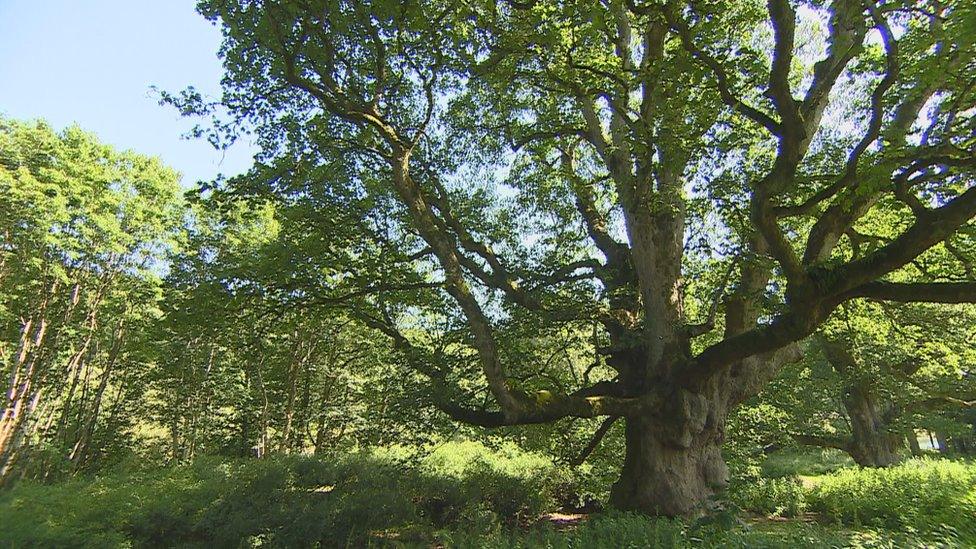
Trees, like the Birnam Oak, could provide part of the solution
But we mainly need to cut our emissions of damaging greenhouse gases which linger in the upper atmosphere and intensify the sun's rays.
Robin Parker from WWF Scotland said: "We know that we need to fly less, to eat less meat, to drive less and so on.
"We also know the things we can't do as individuals. It's those things where the government needs to help us.
"So, there's nothing I can do on my own to change the fact that car companies aren't providing enough electric vehicles to buy. There's nothing I can do to change it so that when it comes to replacing my gas boiler, there are opportunities to switch that for a renewable system.
"It's those areas where the government has to lead, has to organise the response and has to overcome those knotty challenges."
Reducing emissions
The largest share of greenhouse gas emissions in Scotland, about a third, come from the transport we use.
About a quarter is from farming and land use, a fifth is from business and heavy industry and most of the rest comes from heating and electricity generation.

Scotland's target is to reduce all that to "net-zero" by 2045.
It does this by balancing the remaining emissions with the amount being absorbed by trees or diverted into carbon capture and storage.
'Up the pace'
In recent months, the Scottish government has been organising "climate conversations" around the country to assess people's views on their declared emergency.
Environment Secretary Roseanna Cunningham told BBC Scotland: "The global climate emergency is basically signalling to us that we can't mess about any longer. We've got to up the pace on this.
"This is about policies and about making changes more rapidly than might otherwise have been the case."
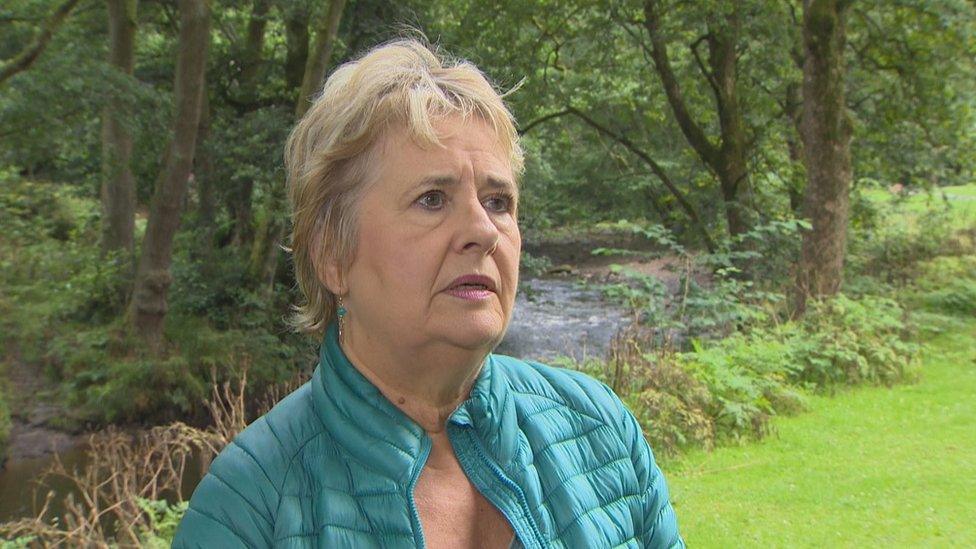
Environment Secretary Roseanna Cunningham said everybody had a role to play to tackle the climate emergency
She said the government's role was to remove "obstacles" that may in the past have prevented change happening at a faster pace.
"If you use the word 'emergency', we think about blue lights and sirens, and ambulances and police cars able to go through red lights, because when it's an emergency we allow certain corners to be cut."
'Significant actor'
She said responding to the climate emergency would not work unless "everybody is on board".
"This is not something the Scottish government can do on its own," she said.
"The UK government is also a very significant actor here. The business sector is a very significant actor and individual households, as well, have got to think very carefully about their own responsibilities and contributions."
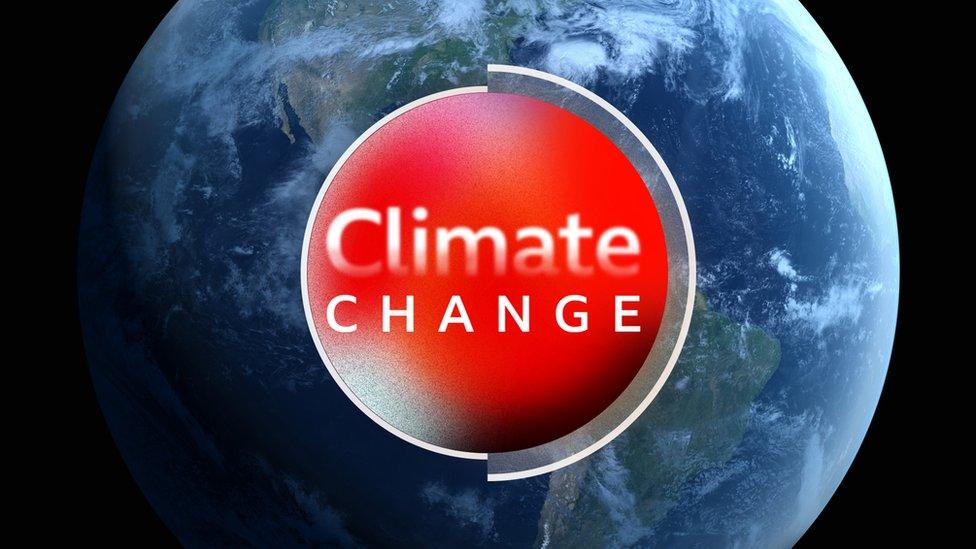
BBC Scotland News is running a season of climate change coverage across radio, TV, online and social media.
- Published9 August 2019
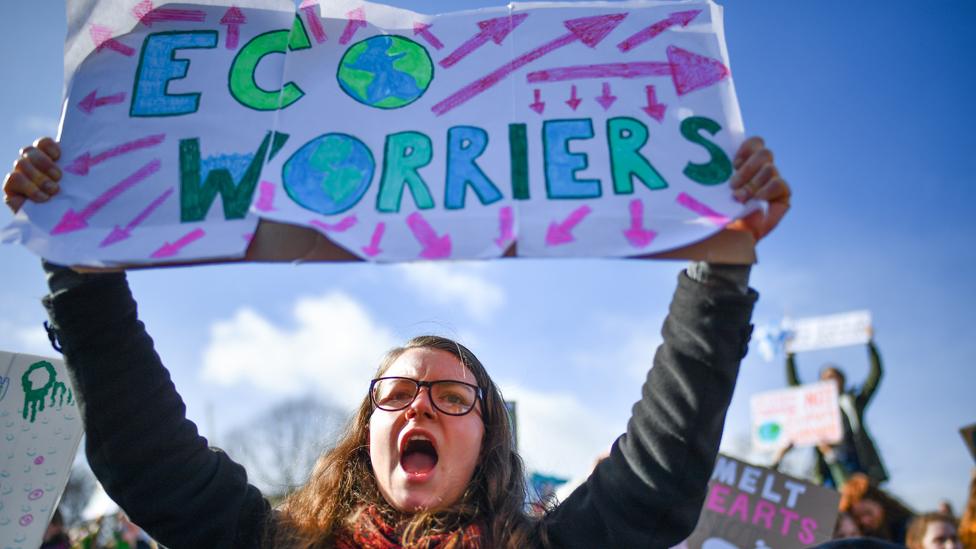
- Published27 November 2023

- Published30 July 2019
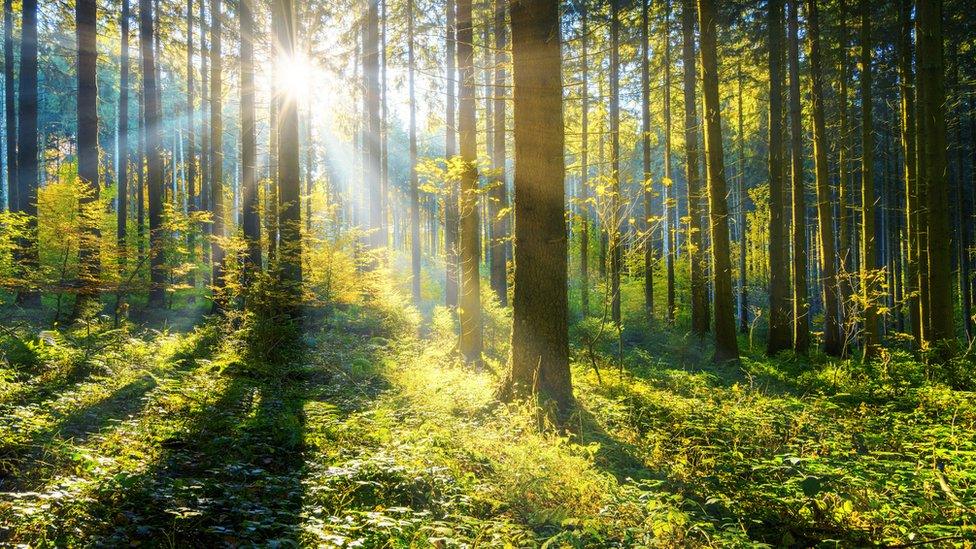
- Published15 May 2019
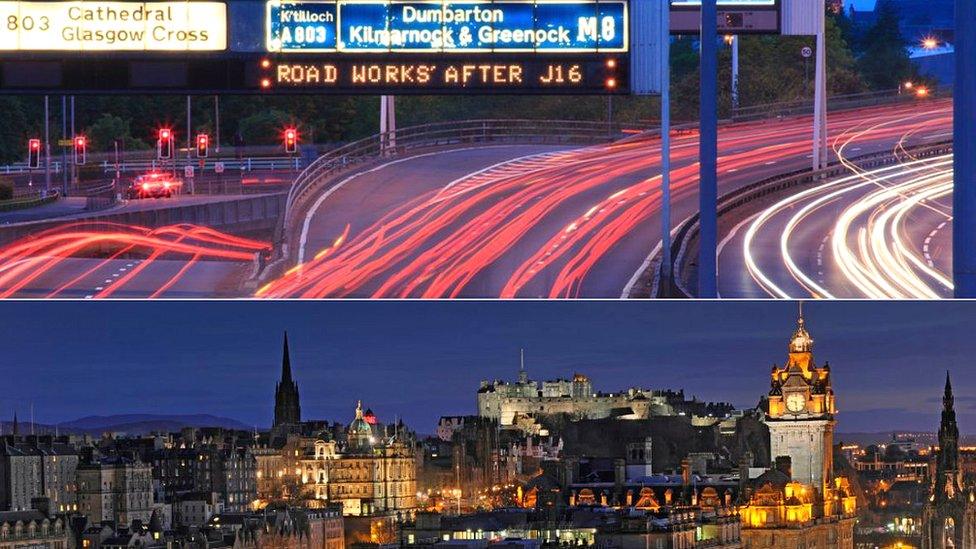
- Published2 May 2019
